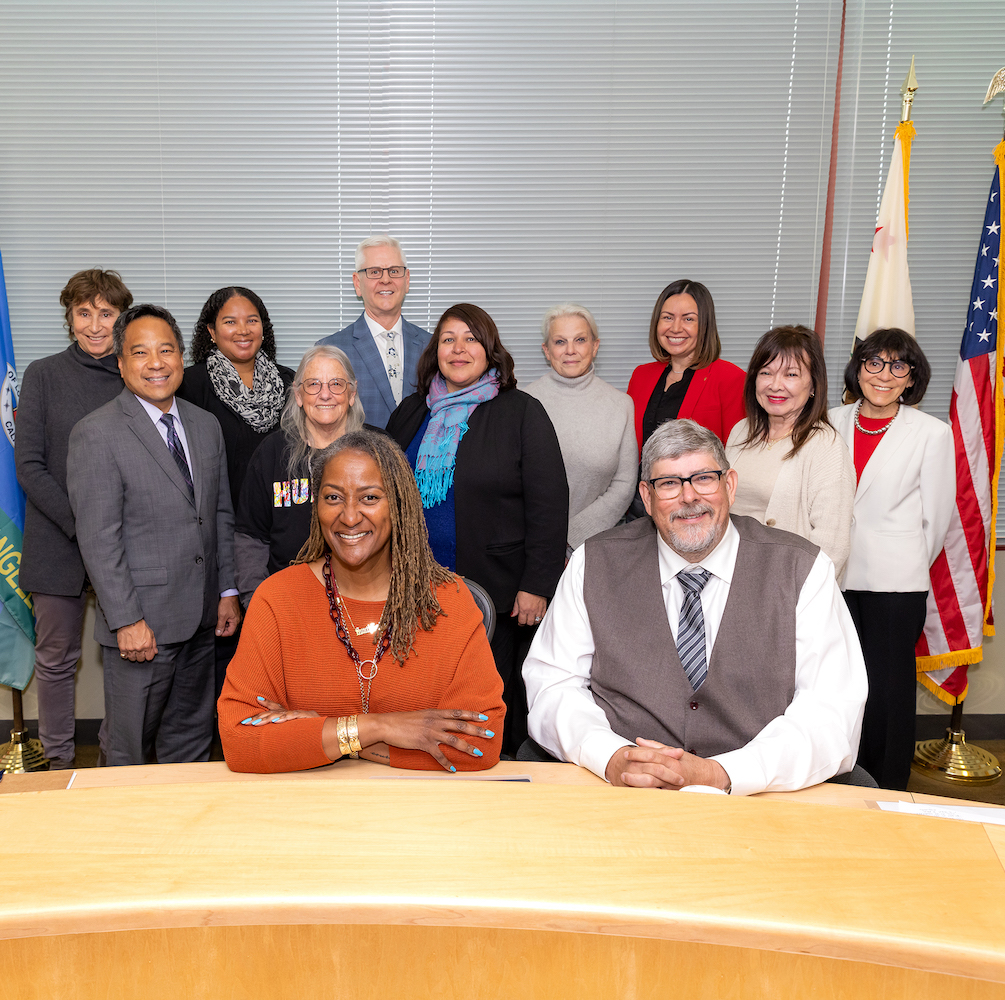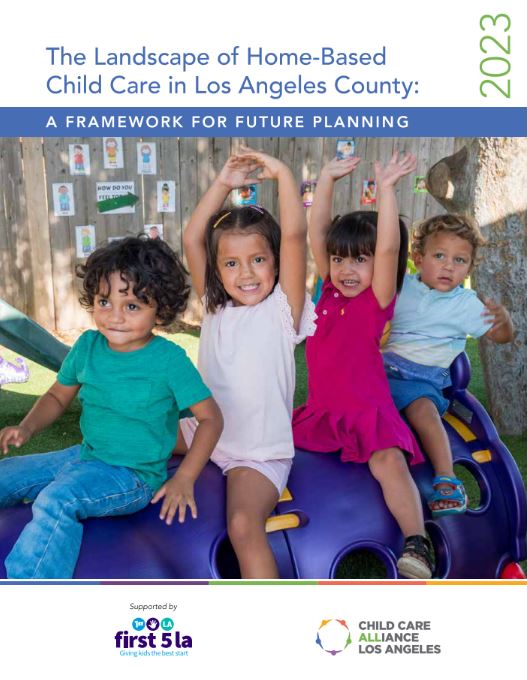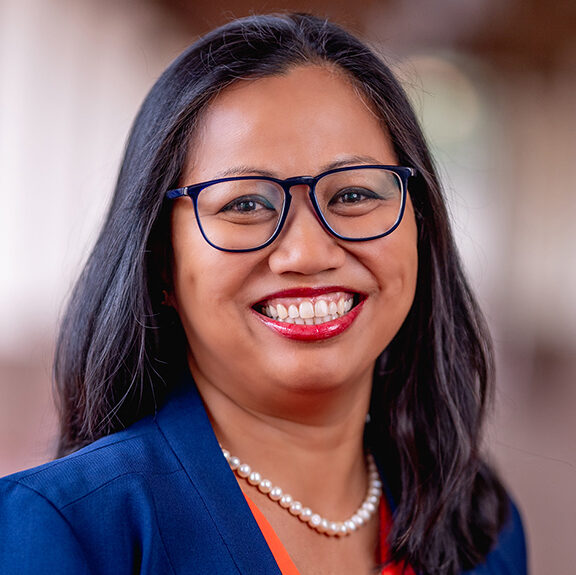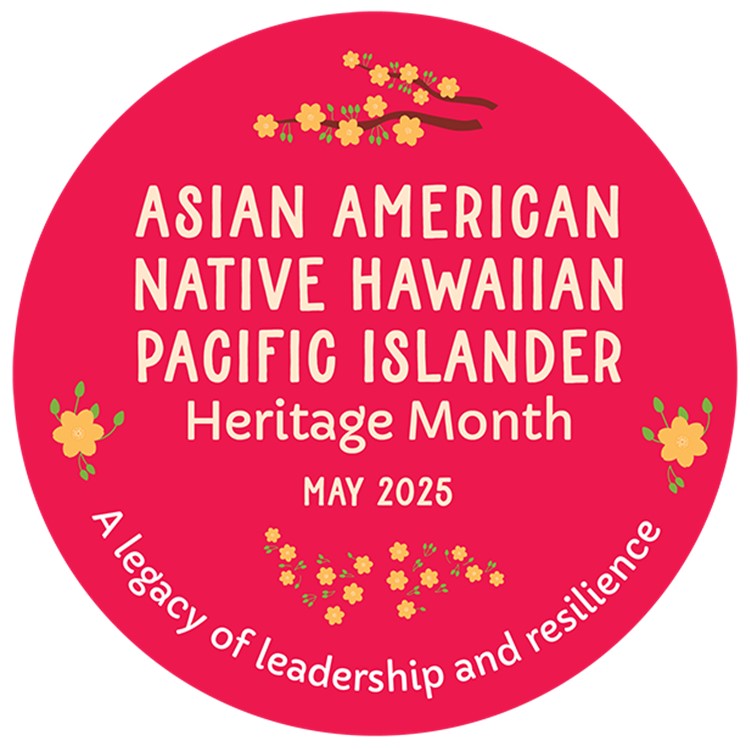July 27, 2023
First 5 LA’s meeting of the Board of Commissioners convened in person and virtually on July 13. The agenda featured two informational presentations centered around First 5 LA’s Strategic Reset, with a focus on First 5 LA’s Home-Based Child Care (HBCC) landscape analysis, well as an informational presentation and opportunities-focused session with Castro & Associates on First 5 LA’s Strengths, Weaknesses, Opportunities and Threats (SWOT) analysis.
The July 13 Board of Commissioners meeting was centered around First 5 LA’s Strategic Reset with an emphasis on how First 5 LA’s Board of Commissioners — comprised of leaders from across the County — can inform strategies that support the achievement of First 5 LA’s mission: that all kids in L.A. County achieve their full developmental potential throughout the critical ages of prenatal to 5.
Los Angeles County Supervisor and First 5 LA Board Chair Holly J. Mitchell noted this during the remarks from the Chair, calling attention to the goal behind why the organization is undergoing the Reset: “It’s important we all get it right because we all know L.A. County’s children and their families are counting on us to do so, and they deserve it.”
Connecting the Strategic Reset to First 5 LA’s mission, Mitchell asked Commissioners to consider what “full developmental potential” means from their vantage point as Board members. She encouraged her colleagues to reflect on this question in the context of racial justice and equity.
“When we talk about every child in L.A. County reaching their full developmental potential throughout the critical years of prenatal to 5, we have to ask ourselves: What does that mean to us?” Mitchell said. “It’s my expectation, as your colleague and Chair, that as we answer that question, we continue to keep our commitment to racial justice and equity in mind because it’s only then that we can truly best serve the beautiful complexity and diversity of the child that comprise L.A. County.”
During her remarks from the Executive Director, Karla Pleitéz Howell discussed the recently signed FY 2023-24 state budget and uplifted the various wins for kids and families in the budget despite the state’s economic volatility and budget deficit.
“Children and families are not always prioritized and are often the first to be cut. And this budget is historic in that we were at the table,” she said. “Children and families continued to be part of the conversation because of the work that’s being done by our partners. Still, we know that California has a long way to go to think about a children’s budget and making sure we continue to center children and families.”
To learn more about the 2023-24 state budget and how it relates to First 5 LA’s priorities, click here for an analysis from First 5 LA Office of Government Affairs and Public Policy Senior Policy Strategist Ofelia Medina.
Turning the attention back to the Strategic Reset, Pleitéz Howell underscored the fundamental purpose of First 5 LA. “Proposition 10 makes our charter really, really clear: We are here for the population of prenatal to 5. And that is the focus of our Strategic Reset, and that continues to lift up the needs of this population.”
For full remarks from the Executive Director, click here.
The next item on the agenda was a presentation and panel discussion on First 5 LA’s Home-Based Child Care (HBCC) Landscape Analysis, with an analysis of how provider and parent voices can inform First 5 LA’s Early Care and Education (ECE) strategies during the Strategic Reset.
Last February, First 5 LA’s ECE Team, in partnership with Child Care Resource Center (CCRC), embarked on an analysis of L.A. County’s home-based child care system to better understand how First 5 LA and its partners could better support the system that provides child care for the majority of families.
Joining the meeting to dive deeper into the findings were Executive Vice President John Wagner, ECE Program Officer Gina Rodriguez, CCRC Research Director Dr. Susan Savage, CCRC Research Manager Olivia Pillado, Liao Family Child Care Owner Jenny Liao, Flores Family Child Care’s Justine Flores, Center for the Study of Child Care Employment (CSCCE) Executive Director Lea Austin and CSCCE Senior Research and Policy Associate Anna Powell.
Rodriquez provided an overview of the HBCC context in L.A. County, stating that HBCC — which encompasses child care offered in a home setting by either an unlicensed Family, Friend or Neighbor (FFN) or a licensed Family Child Care (FCC) provider— is the most common form of nonparental care for infants and toddlers, as well as the type of care primarily used by historically marginalized families. Like the families they serve, she explained, HBCC providers are primarily made up of women of color who grapple with inequities caused by structural and historical racism, such as low wages and a lack of structural supports that perpetuate poverty for the workforce.
“The ECE system is already shaped by local, state and federal policies with deep roots in slavery, colonization, racism and sexism,” Rodriguez said. “The home-based child care workforce and the children in their care are marginalized in this already oppressive system, so it’s important to recognize how critical it is to address issues around home-based child care in order to strive for greater equity for children, families and early educators.”
Savage spoke on how the data collection process and analysis behind the Landscape Analysis were designed in partnership with providers and families to ensure a focus on equity.
“We ensured that the language group represented and tool design, methodology, and review of the analysis to ensure that the recommendations coming forward really truly represent the lived experience of the community…” Savage said. “So, hearing from the community and having them drive this research was really key in ensuring what we bring will benefit the community.”
Pillado shared an overview of some of the findings with the Board, highlighting how FFN providers tended to go into the profession to help a loved one or family member; in contrast, most FCC providers reported being motivated by a professional or career calling. While the data offered insight into the differences between the two types of providers — such as the age of children in their care and the use of professional development support — Pillado shared that the data also showed that, when it came to hardships, both FCC and FNN providers reported low wages as their most difficult challenge.
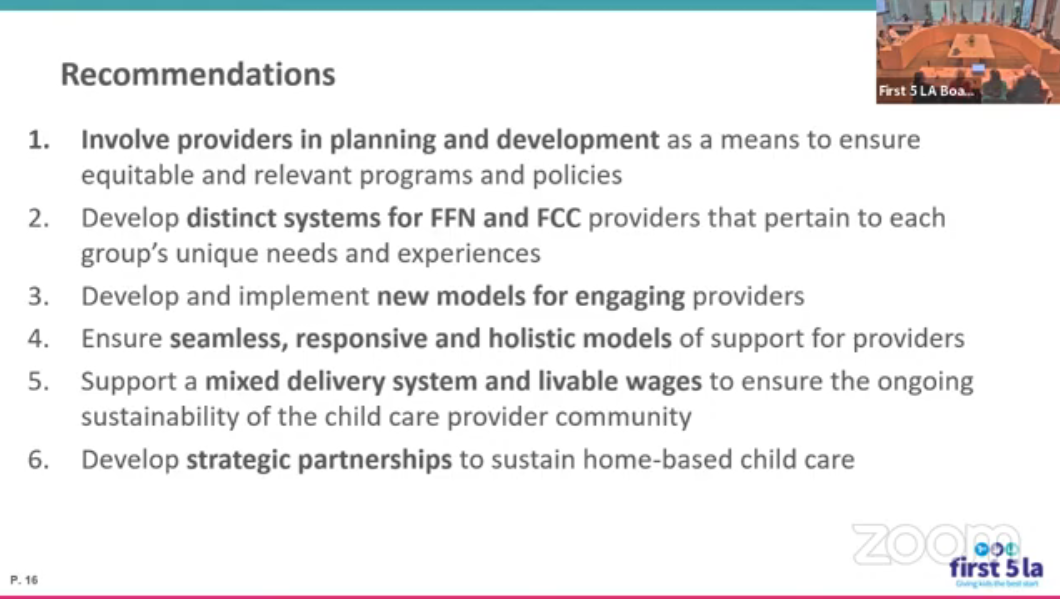
Involving providers in the planning and development of policies designed to support them is one way that advocates like First 5 LA could help support the field, Savage shared when highlighting recommendations based on the findings. Other methods of support included developing new models of provider engagement, ensuring holistic, responsive support systems, and supporting a mixed delivery system and livable wages for providers.
To bring life to the stories behind the data, Liao and Flores shared with the Board their experiences in running their respective home-based child care services. As providers who offer care in non-English settings in particular, they described how low wages and the lack of support and benefits have left them struggling to maintain their businesses, despite their commitment to the families of color they serve.
“Through my work I have become aware that many families are in search of quality child care but the number of available options fall short of the parents’ needs. At the same time, I have encountered difficulties in operating my home-based day care…” Laio, whose native language is Chinese, shared by way of a translator. She cited examples such as the long hours, required remodeling of the home-based settings to comply with safety regulations, as well as a lack informational resources tailored for providers who do not speak English as obstacles.
“The family child care sector throughout California and Los Angeles in particular needs help with ending the systemic injustice that has plagued our industry for far too long. Licensed family child care is a career to many of us, not a job,” Flores said. “We deserve to receive support with our college-accredited education, the right to select paid time off at our own discretion without an agency or a state-funded program selecting for us. In addition, we deserve health, dental and other benefits when caring for children and state-funded subsidies.”
The presentation closed with an opportunity for Board members to offer feedback and ask questions, many of which were centered around Commissioners’ own personal and professional experiences with child care and the barriers they saw within public systems and in the public’s perceptions of HBCCs.
“The complicated way that the state requires families to access both health and child care — and I’m sure other things as well — needs to change,” Commissioner Judy Abdo said. We’ve talked about this for years, but imagine being a family speaking a language that’s not covered but trying to access programs that they are eligible for. And I don’t think we’re going to see a change there unless we see a great deal of change in Sacramento in the way of thinking about oversight of programs that have to do with young children really are about.”
Commissioners also raised the issue of setting reimbursement rates at market value — a policy that perpetuates workforce poverty without covering the cost of care — and how low wages drive scarcity in workforce recruitment. They noted opportunities at the state level and models that could be replicated both within funding and workforce development as ways in which First 5 LA might impact this system.
For more information on utilizing parent and provider voice in the context of First 5 LA’s Home-Based Child Care Landscape Analysis, click here to view the presentation.
The final item on the agenda was dedicated to First 5 LA’s Strengths, Weaknesses, Opportunities and Threats (SWOT) analysis to support First 5 LA’s Strategic Reset with an opportunities-focused session for Commissioners led by Chief Transformation Officer Antoinette Andrews Bush and consultants Chrissie M. Castro and Rigoberto Rodriguez of Castro & Associates.
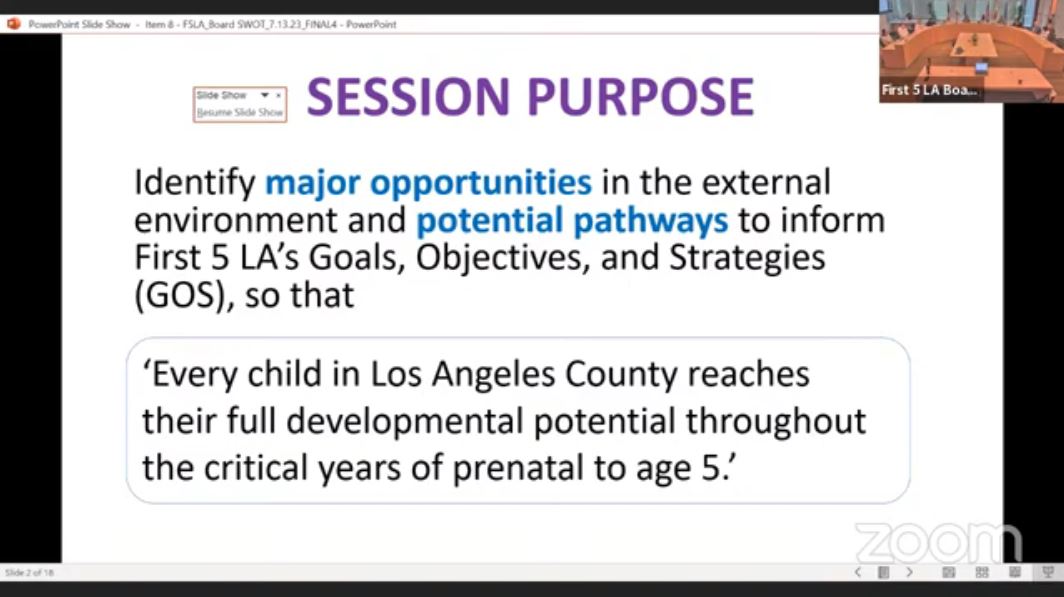
Rodriguez guided commissioners through an exercise that highlighted how, from their unique vantage point as County leaders, First 5 LA can lift up opportunities at the local, state, and federal levels that connect to its North Star and are based on the current environment and pathways to achieving measurable goals.
Five interconnected pathways — communication and public information, linkages to sectors to leverage resources, navigation of resources, accessibility, and meaningful resident and community engagement — were identified by Commissioners based on the exercise. Castro & Associates will continue to engage Commissioners at an individual level to gain more feedback and insights as First 5 LA continues its Strategic Plan Reset.
For more information, click here to view the presentation on First 5 LA’s SWOT analysis.
The next Board of Commissioners meeting is scheduled for September 14, 2023. For more information, please visit www.first5la.org/our-board/board-materials/ 72 hours in advance of the date.
